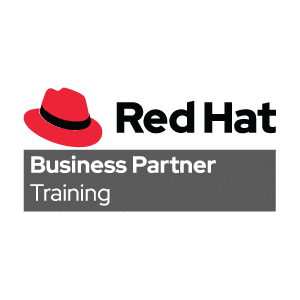Design, build, and deploy containerized applications on Red Hat OpenShift
Red Hat OpenShift Developer II: Building and Deploying Cloud-native Applications with Exam (DO289) teaches you how to design, build, and deploy containerized software applications on an OpenShift cluster
Whether you are migrating existing applications or writing container-native applications, you will learn how to boost developer productivity powered by Red Hat® OpenShift Container Platform, a containerized application platform that allows enterprises to manage container deployments and scale their applications using Kubernetes.
The skills you learn in this course can be applied using all versions of Red Hat OpenShift, including Red Hat OpenShift on AWS (ROSA), Azure Red Hat OpenShift (ARO), and Red Hat OpenShift Container Platform.
This course is based on Red Hat OpenShift 4.14. The Red Hat Certified OpenShift Application Developer Exam (EX288) is included in this offering









